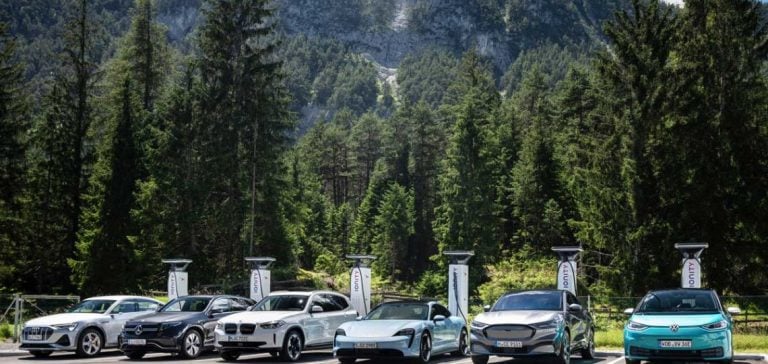Norway has made significant progress in the electrification of its vehicle fleet, marking a historic milestone in which electric cars now outstrip gasoline-powered models.
With 754,303 fully electric vehicles registered, representing 26% of the total vehicle fleet, Norway has positioned itself as a world leader in the transition to more sustainable transport.
At the same time, gasoline-powered vehicles accounted for 753,905 units, while diesel models, although still in the majority with almost one million units, saw their market share decline rapidly.
This dynamic reflects a profound change in the country’s automobile consumption habits.
Data provided by the Road Traffic Information Council (OFV) underline the extent of this transformation.
Øyvind Solberg Thorsen, Director of OFV, comments:
“This is historic. Norway is making rapid progress towards the goal of becoming the first country in the world whose vehicle fleet will be dominated by electric cars.”
This is all the more striking when you consider that, according to the International Energy Agency (IEA), electric cars will account for just 3.2% of the global car fleet in 2023.
Norway, despite its status as a major oil and natural gas producer, has pledged to sell only zero-emission new cars from 2025, an ambitious target that is ten years ahead of that of the European Union.
Electrification success factors
The transition to electric vehicles in Norway is based on a combination of favorable tax policies and government incentives.
For several decades, the Norwegian authorities have been implementing a tax framework that makes electric vehicles competitive with heavily taxed combustion models.
In August, all-electric cars accounted for 94.3% of new registrations, an unprecedented figure that contrasts with the difficulties encountered by other European countries.
Christina Bu, General Secretary of the Norwegian Electric Vehicle Association, stresses the importance of maintaining these incentives:
“All that remains is for the government to make a little extra effort in the draft 2025 budget by resisting the temptation to increase taxes on electrics while continuing to increase those on combustion.”
Additional benefits, such as free city tolls and free parking in public parking lots, have also played a crucial role in the adoption of electric vehicles.
However, these benefits have been progressively reduced, raising questions about the long-term sustainability of this transition.
Indeed, Norway has come a long way since 2004, when the fleet consisted of just a thousand electric vehicles.
Today, the speed of this renewal could mean that, by 2026, electric cars could also surpass diesel cars.
A model to meet European challenges
Norway’s transition to electric power is crucial to achieving the country’s climate targets, which aim to reduce greenhouse gas emissions by at least 55% by 2030 compared with 1990.
Although emissions will have fallen by 4.7% in 2023 compared to the previous year, the reduction compared to 1990 is still only 9.1%.
Norway also draws almost all its electricity from renewable sources, mainly hydroelectric dams, strengthening the case for electric power as a sustainable solution.
However, the Norwegian model faces challenges in the European context.
While electric car sales are stagnating in other countries, accounting for just 12.5% of new car sales in 2023, Norway stands out for its ability to maintain growth momentum.
Forecasts indicate that the market share of electric vehicles could reach between 20% and 24% of new registrations in 2025 in the European Union, but doubts remain as to the EU’s ability to completely ban combustion-powered vehicles by 2035.
Future prospects
The situation in neighboring Sweden illustrates the challenges that Norway may also face.
Sales of new electric vehicles there fell for the first time this year, following the abolition of the purchase bonus.
This raises questions about the sustainability of incentives for electrification, and the need for a long-term strategy to support this transition.
Norway, while a model to follow, needs to navigate carefully to maintain its lead in a constantly evolving automotive landscape.
The electrification of the Norwegian car fleet represents a significant turning point in the fight against climate change and fossil fuel dependency.
The lessons learned from this experience could offer valuable insights for other countries seeking to accelerate their own transition to more sustainable transport.






















